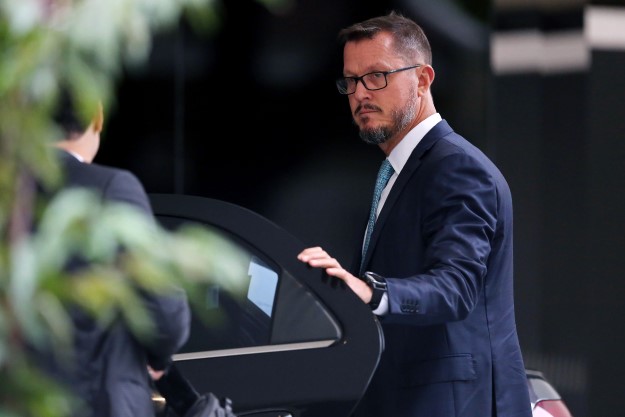LIMA — When former president Alan García committed suicide this month, the global headlines focused on the personal tragedy of a brilliant but controversial politician cornered by a new generation of anti-corruption prosecutors whose independence and determination he apparently failed to anticipate when in office.
But the shocking turn of events also highlighted Peru’s status as the jurisdiction outside of Brazil where investigations into the Odebrecht corruption mega-scandal are most advanced, with numerous political heavyweights in serious legal jeopardy and many already in pretrial detention.
If Peruvian Odebrecht prosecutors have already stolen a march on their counterparts elsewhere in Latin America — including seeking jail time for all of Peru’s four most recent presidents — they are now about to go into overdrive thanks to a long-awaited plea agreement signed in February with the giant Brazilian construction company.
Under its terms, Odebrecht agreed to pay a fine of $200 million and provide documents and testimony regarding its criminal activity in Peru. In return, Peruvian prosecutors promised not to pursue individual executives and to allow the company to continue operating in Peru.
According to Diego García Sayán, a former justice minister and ex-member of the InterAmerican Court of Human Rights, the deal is the first ever “emblematic” case of international cooperation under the United Nation’s Convention Against Corruption. “Peru is showing the way,” he told AQ.
Jorge Barata, Odebrecht’s former Peru country manager, finally began giving his long-awaited testimony at the end of April, being grilled for five days straight by Peruvian prosecutors in Curitiba, Brazil. The results were devastating.
Barata confirmed what had long been believed in Peru, that Odebrecht had illegally funded the campaigns of the country’s last four presidents as well as Keiko Fujimori, the runner up in the 2011 and 2016 presidential elections.
He also admitted paying millions of dollars in bribes to two of García’s righthand men, Luis Nava and Miguel Atala — neither of whom had any direct responsibility for the various public works that Odebrecht was seeking to influence. Barata added that García was aware and that communicating with the pair was equivalent to talking directly with the then president.
That testimony appears to directly contradict García’s repeated denials of corruption, including in his defiant suicide note in which he claimed: “There were not, nor will there be, [foreign bank] accounts, nor bribes, nor riches.”
But, despite that seeming vindication, the agreement has been hugely controversial, with many, including President Martín Vizcarra, fearing it lets off Odebrecht too lightly.
The greatest resistance, however, has come from those seeking to protect the status quo, above all García’s rump APRA party and its ally, the hard-right Popular Force party led by Keiko Fujimori, who is serving three years of pretrial detention for allegedly staging a series of fake campaign fundraising events to launder dirty money.
At one point, citing similar concerns to those of Vizcarra, the fujimoristas even threatened to impeach his justice minister over the deal — despite the fact that the prosecutors who negotiated it are completely autonomous from him. For Popular Force’s critics, that was nothing more than a smokescreen hiding a desire to sabotage the deal entirely.
There is one precursor to Peru’s deal with Odebrecht, namely the plea deal struck between Brazilian, Swiss and U.S. prosecutors in 2016. It was as a result of that agreement that Odebrecht first admitted paying nearly $800 million in kickbacks across Latin America and Africa, and accepted a fine of $3.5 billion, thought to be a world record in a graft case.
Yet despite the apparent success of that agreement and now its Peruvian counterpart, most other jurisdictions in Latin America have yet to follow a similar path.
In Colombia, for example, prosecutors are calculating that they can successfully bring both local public officials and Odebrecht executives to justice without letting any of the perpetrators off the hook in return for implicating others.
“I think it would be very difficult for Colombians to accept that these executives will walk free simply for turning over this information,” says Andrés Hernández, executive director of Transparency International’s national chapter.
Nevertheless, that stance comes at a price, notwithstanding the successful prosecution of various important players in Colombia for allegedly participating in Odebrecht’s network of graft, including, so far, senators and a former minister.
“There is a feeling of frustration, that something is still missing,” adds Hernández. “There is a fear that not everything is being done to get to the bottom of this.”
Now, with the Pandora’s box of Latin America’s largest corruption scandal well and truly open, but many of its secrets yet to see the light of day, prosecutors around the region are faced with a dilemma.
Should they follow the apparently highly effective Peruvian model, allowing some confessed criminals to escape sanctions in return for coming clean, or should they indict all Odebrecht suspects even if that risks some individual prosecutions and, potentially, public faith in their respective justice systems?
—
Tegel is an independent journalist and analyst based in Lima. You can follow him on Twitter at @SimeonTegel.







